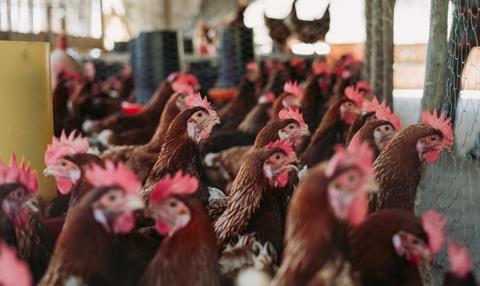The British Poultry Council (BPC) has said that pragmatic policies and a willingness to engage must remain at the core of government efforts to ‘level up.’

To tackle the challenges of the ongoing labour and skills shortage of meat industry workers, the BPC is calling for financial support from government-backed loans to help businesses accelerate investment plans to automate and upskill the British poultry meat industry as quickly as possible.
The BPC is also asking that vital food production be kept at the heart of skills and education programmes to support “meaningful change that will maximise the productivity of a future-proof sector.” Reviewing the Apprenticeship Levy and the Lifetime Skills Guarantee, BPC said, will support building a skilled UK workforce.
In addition, the BPC is also calling for a review of the immigration system to ensure industry has the space and time to upskill a British workforce and invest in new technologies. It said that any changes or additions to the existing system must be announced by May 2022 at the latest.
A solvable problem
Responding to the Environment, Food and Rural Affairs (EFRA) Committee’s latest report, chief executive of the BPC Richard Griffiths said: “This report brings together three factors that can transform the labour challenge into an opportunity for UK food security, creating good jobs, and allowing businesses to flourish.”
Griffiths said that immigration, skills and technology underpin some of the challenges the poultry sector faces putting food on tables across the country. He added: “We should be using this report as a lens to look at these three items as working together to maintain the integrity of supply chains today and to build resilience into them for tomorrow.”
According to BPC, the EFRA report warned that the wider food and farming sector faces “irreversible damage” should the government fail to design the UK’s immigration system around the current needs of the economy.
The Council said reviews to the Skilled Worker and the Seasonal Workers Visa Schemes would not only give the British poultry industry necessary support to tackle short term and seasonal labour shortages, but give businesses the space to tap into government’s longer-term ‘levelling up’ agenda, with a focus on a highly skilled domestic workforce and maximum productivity.
Griffiths concluded: “A portion of this ongoing battle lies in convincing certain government departments that food production is vital. The labour crisis is a solvable problem, but it requires pragmatism and an open mind. When we questioned why food and farming were not included on government’s Lifetime Skills Guarantee, we were told by the Home Office that the Guarantee 'aligns most strongly with strategic skills priorities and meet labour market needs.'
“Despite there being a national shortage of labour and much publicised risks to national food security, the businesses feeding the nation are not seen as a priority. That has to change. It is good to see the Committee’s report highlight this so strongly.”
This story was originally published on a previous version of the Meat Management website and so there may be some missing images and formatting issues.












